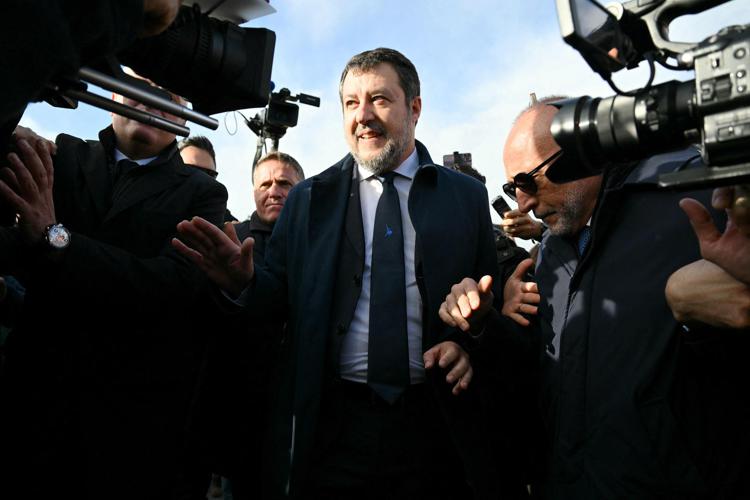After a long day of waiting, especially for him, Matteo Salvini, who was involved in the Open Arms trial, the verdict has arrived. Just in time for the 8 PM news. Jokes aside, what mattered was the substance—the decision of the judges. Well, the judges in Palermo, surprisingly in my view, acquitted the former Minister of the Interior in the Conte I government, who had been accused of kidnapping and falsification of public documents for preventing the disembarkation of migrants from the NGO ship that gave its name to the trial.
“The League wins and Italy wins,” commented the leader of the League before embracing his partner, Francesca Verdini, with affection. After all, it’s also a victory for the man, the person, beyond the political role he had at the time and still holds today. Had he been convicted, politically, Salvini would have emerged stronger anyway. Within the League, who wouldn’t have shown solidarity with a convicted leader? And in the government, allies would have been called upon to show solidarity on matters of justice and immigration.
But this way, Salvini has won completely: defending Italy’s borders, especially during a governmental mandate, is not a crime. Let’s be clear, this trial was a legal and political abomination. It only existed due to the attempt to damage a political opponent through judicial means—a route that, after many years and many wrongdoings, is showing signs of historical fatigue.
If we add Salvini’s acquittal to Renzi’s (in the Open Arms case), we can say that the two strongest political leaders of the past decade—before Meloni’s rise—are now finding, through their differences and struggles, a new personal and public era.
So, justice wins, as it should. And that’s not bad news for our democracy.


